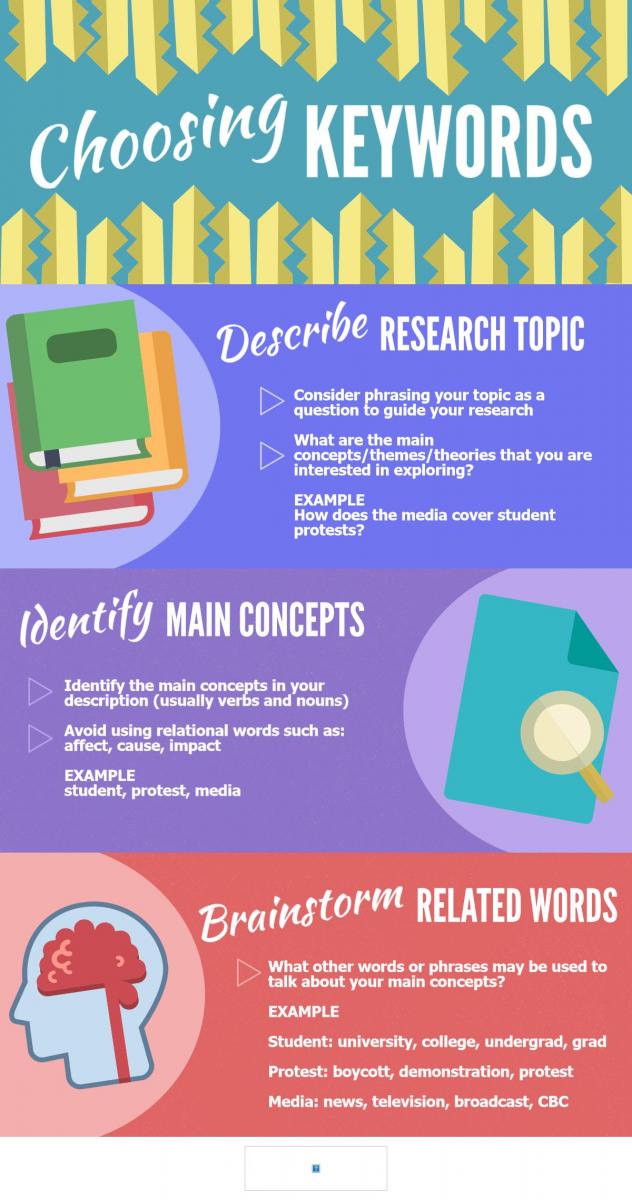
"Choosing search keywords" was created by McMaster University Libraries using a CC-BY license. Click to enlarge the infographic.
Remember these tips for choosing search keywords:
- brainstorm search terms before you actually start searching
- use concepts (nouns), not the relationships between concepts (verbs)
- limit the number of search terms that you use at any one time
Try writing out your research topic as a sentence. Underline the most important nouns. These are your search terms.
For example, if you were researching the impact of restorative justice on K-12 students of color, you might write it as:
How are California high schools using restorative justice to address inequalities and help students of color to be successful in school?
You can start making a list of search terms, starting with the words you have underlined:
- California high schools
- restorative justice
- inequalities
- students of color



